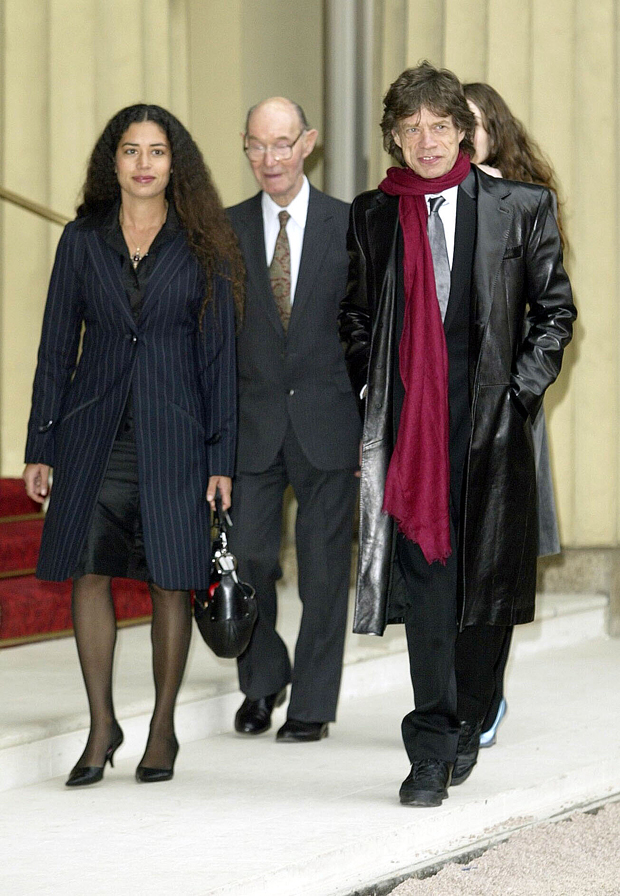The legendary Mick Jagger, lead singer of The Rolling Stones, has fathered eight children with five different women. This remarkable family tree spans generations, making him not only a rock icon but also a patriarch of sorts. Despite his busy life as a musician and performer, Jagger's role as a father has been subject to scrutiny and curiosity among fans and critics alike.
Mick Jagger: A Rock Star and Family Man
Mick Jagger's first child, Karis Hunt Jagger, was born in 1970 to former actress, model, and author Marsha Hunt. Karis is now in her fifties, making her the eldest of Jagger's offspring. Following Karis, Jagger welcomed Jade Sheena Jezebel Jagger with Bianca Jagger (née Pérez-Mora Macías) in October 1971, just months after their marriage. Jade grew up to become a renowned jewelry designer and actress, carrying on the family's creative legacy.
Jagger’s relationship with Jerry Hall brought four more children into his life: Elizabeth, James, Georgia May, and Gabriel. These children have pursued diverse careers, from modeling to business, reflecting their father's eclectic interests. Later, Jagger had Lucas Moreira de Morais with Brazilian model Luciana Gimenez Morad in 1999, adding another chapter to his expanding family.
In 2016, at the age of 73, Jagger became a father once again when his then-girlfriend, American ballerina Melanie Hamrick, gave birth to their son Deveraux. This youngest addition highlights Jagger's enduring vitality and ability to balance his demanding career with personal milestones.
An Analytical Look at Parenting and Legacy
While Jagger's prolific parenthood is well-documented, questions remain about the nature of his involvement in raising these children. Critics often wonder whether he played an active role in their upbringing or if his financial contributions overshadowed emotional presence. As one Redditor, u/brk1, pointed out, He may give them shelter, but he's probably not giving them his music catalog. Such skepticism reflects broader concerns about celebrity parenting dynamics.
Despite these doubts, Jagger has expressed intentions to leave a thoughtful legacy for his children. In recent interviews, he hinted that his massive fortune—estimated at over $500 million—might not be entirely passed down to his heirs. Instead, he plans to distribute it responsibly, possibly through charitable endeavors. This decision underscores Jagger's awareness of privilege and responsibility, even as he approaches his ninth decade.
Exploring Mick Jagger's Children
To better understand this fascinating family, let us delve deeper into each child:
- Karis Hunt Jagger: Born in 1970, Karis is Jagger's oldest daughter and the result of his relationship with Marsha Hunt. She leads a private life away from the limelight.
- Jade Sheena Jezebel Jagger: Born in 1971, Jade followed in her parents' artistic footsteps, becoming a successful jewelry designer and occasional actress.
- Elizabeth Scarlett Jagger: Born in 1984, Elizabeth is a model and socialite who occasionally collaborates with luxury brands.
- James Hungerford Jagger: Born in 1985, James works behind the scenes in the fashion industry, maintaining a low profile compared to his siblings.
- Georgia May Jagger: Born in 1986, Georgia May is a celebrated model and has graced numerous high-profile campaigns.
- Gabriel Luke Jagger: Born in 1997, Gabriel keeps a relatively quiet existence, focusing on personal pursuits rather than public appearances.
- Lucas Moreira de Morais: Born in 1999, Lucas is the son of Brazilian model Luciana Gimenez Morad and continues to thrive under his mother's guidance.
- Deveraux Edward Louis Richard Jagger: Born in 2016, Deveraux represents the newest generation of Jaggers, embodying the timeless spirit of his father.
Each child brings unique qualities to the table, showcasing the diversity within Jagger's brood. From glamorous designers to reserved individuals, they collectively paint a vivid picture of modern celebrity lineage.
Does Mick Jagger Seem Genuine About His Wealth Distribution?
As Jagger contemplates how to handle his substantial wealth, many speculate about his motivations. Some argue that his willingness to forego traditional inheritance practices stems from genuine concern for societal impact. Others view it as a calculated move to preserve his legacy while avoiding potential family disputes.
Regardless of intent, Jagger's approach invites reflection on the responsibilities accompanying immense riches. By considering alternatives to straightforward wealth transfer, he sets an example for other high-net-worth individuals navigating similar dilemmas.
Conclusion: Mick Jagger's Dual Legacy
Throughout his illustrious career, Mick Jagger has cemented his place in music history as the charismatic frontman of The Rolling Stones. Simultaneously, he has built a sprawling family network spanning multiple continents and cultures. Whether through his artistry or his role as a father, Jagger continues to inspire admiration—and occasionally, debate.
As he embarks on new tours and ventures into his later years, one thing remains clear: Mick Jagger's influence extends far beyond the stage. His children, each forging their own paths, carry forward a legacy shaped by both fame and familial bonds.

